10 of the Best Science-Fiction Short Stories Everyone Should Read
50 Sci-Fi/Fantasy Novels That Everyone Should Read
People say it all the time: they’d love to get into science fiction or fantasy, but they’ve no idea where to start. If this is you (or if you’re one of those stubborn folks who looks snootily down on genre), listen up. Your trusty Flavorwire editors have a few suggestions for you — that is, a whole 50 sci-fi and fantasy novels that are well worth your time, whether you’re brand new to the concept of dragons and/or spaceships or a seasoned veteran. A few notes on the construction of the list: no short stories or short story collections, no matter how brilliant (looking at you, Kelly Link), were included. Also, in the interest of fairness, only one work or series by any given author was included. Finally, because this is a list of novels that adults should read, it skews light on the YA, including only those books that grown-ups should pick up if they missed them in their teens. Even with all of the above, you’ll probably have quibbles. After all, 50 novels over two genres doesn’t even begin to cover it. So air them (politely, please) in the comments and you’ll add to all of our reading lists.
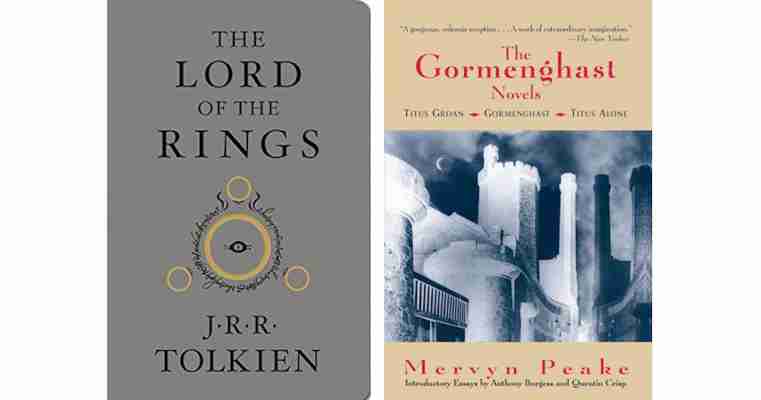
Ubik , Philip K. Dick
Any number of Dick’s works could have made this list, and choosing just one wasn’t the easiest task, but the brilliant, existential Ubik, with all its conflicting, unresolved “realities,” just might be the best of the bunch.
Ender’s Game , Orson Scott Card
Politics aside, there’s no getting around the brilliance of this book, which is not only a thoroughly engrossing page-turner, but also manages to be about war, politics, empathy, video games, manipulation, identity, and how much your big brother can truly mess with you. Plus, there are more where that came from.
The Lord of the Rings trilogy, J.R.R. Tolkien
Well, obviously. Depending on whom you ask, The Lord of the Rings is basically both the Moby-Dick and the Great Gatsby of fantasy literature.
The Handmaid’s Tale , Margaret Atwood
Though Atwood would describe this terrifying dystopian novel, as well as her Oryx and Crake series, as “speculative fiction,” it just didn’t seem right not to include it here. After all, not only is it an influential and widely popular work, but it won the very first Arthur C. Clarke award, given to the best sci-fi novel in any given year. Can’t argue with that.
Dhalgren , Samuel R. Delany
Delany’s classic novel is a gorgeously convoluted, circular puzzle, full of Greek mythology, texts-within-texts, and incredible language. It’s also a fairly controversial addition to the canon — Theodore Sturgeon called it “the very best ever to come out of the science fiction field.” Then again, Harlan Ellison threw it against a wall. Better read it and decide for yourself.
A Song of Ice and Fire , George R.R. Martin
No, it’s not good enough to just watch the show – like (almost) always, the books are better. And don’t you want to be the smarty-pants explaining how things really happened at your GoT watching parties? You know you do.
Frankenstein , Mary Shelley
Not only is this novel brilliant, beautiful, and endlessly upsetting, it’s also widely acknowledged to be one of the first – if not the actual first – science fiction stories ever written.
The Gormenghast series, Mervyn Peake
This series, often cited as the first fantasy of manners, is also a surreal harkening to Regency romance, with a healthy serving of Gothic literature. Plus, you get to hang out with a protagonist called Titus Groan.
The Moon Is a Harsh Mistress , Robert A. Heinlein
Heinlein has several books that could have made it onto this list, but The Moon Is a Harsh Mistress, which details a lunar colony’s revolt against Earth, a self-aware computer named Mike, and the important concept of TANSTAAFL, is this writer’s favorite.
Kindred , Octavia Butler
In this novel, a 26-year-old black woman is suddenly (and then repeatedly) transported back in time to a slave plantation in the antebellum South, where she is subjected to all the harshest parts of slavery as she protects the son of a slave owner. But of course, like several other authors on the list, this novel only represents the tip of the iceberg of Butler’s brilliance. In 1995, she received the MacArthur Foundation Genius Grant, becoming the first science fiction writer ever to snag the honor.
The Left Hand of Darkness , Ursula K. Le Guin
It was hard not to put A Wizard of Earthsea here (and consider it installed in spirit), but actually, it’s difficult to go wrong with Le Guin. This novel explores an alien planet populated by a race of unisex beings who are able to assume either binary gender during reproduction, and is chock full of philosophical insights on humanity and society – both current and future
Nine Princes in Amber , Roger Zelazny
This one is a classic that is too often overlooked by the general public. After all, as Lev Grossman explained it, “You can’t top the setup: it begins like Harry Potter crossed with The Bourne Identity, and it only accelerates from there. Our hero wakes up in a hospital with no memory of who he is. He gradually discovers that he’s part of a noble family, a (literal) Tarot deck of superpowered princes and princesses of Amber, a world of which our own is merely a shadow.”
Jonathan Strange & Mr. Norrell , Susanna Clarke
Clarke is another writer who straddles genre – sometimes many at once. Her debut novel blends winking fantasy and adventure and what she calls “pastiche historical” with excellent magic and explores the tension between reason and madness as much as it does the tension between good and evil.
Slaughterhouse-Five , Kurt Vonnegut
This is a classic American novel that everyone always forgets is also a classic American sci-fi novel. But what else can you call a book whose narrator has become “unstuck in time?” Or, say, who has been abducted by aliens from planet Tralfamadore? Yeah, that counts.
The City & The City , China Miéville
Miéville is the cool kid of contemporary fantasy/weird fiction/steampunk/what have you, and he also happens to be a stellar author. This highly decorated book (it won the Locus Award for Best Fantasy Novel, Arthur C. Clarke Award, World Fantasy Award, BSFA Award, and tied with Paolo Bacigalupi’s The Windup Girl for the Hugo Award for Best Novel) blends fantasy with crime in a hallucinatory story set in two cities that occupy the same space.
The Once and Future King , T.H. White
Well, you can’t have a list of essential fantasy novels without a little Arthurian legend, now can you? Though the traditional stories have been reinterpreted time and time again, White’s version is a classic, once described by fantasy historian Lin Carter as “the single finest fantasy novel written in our time, or for that matter, ever written… I can hardly imagine that any mature, literate person who has read the book would disagree with this estimate.”
The Mists of Avalon , Marion Zimmer Bradley
Speaking of Arthurian legend, you may want to pair your White with a little Bradley. Her 800+ page tome retells the myths from the perspective of their female characters, usually so securely marginalized, and is widely recognized as one of the best and most original interpretations around.
Zone One , Colson Whitehead
Literary types longing to dip a toe into the sci-fi horror realm would do well to start with highbrow author Colson Whitehead’s second dive into genre fiction (see also: The Intuitionist). Zone One takes place in post-pandemic Manhattan, following a crew of survivors sweeping the city for any remaining “skels.” Whitehead’s introspective understated approach elevates this zombie tale, his psychological realism guaranteeing the story will stick with you far longer than the latest Walking Dead episode.
The Harry Potter series, J.K. Rowling
These books are beloved for good reason: they’re satisfying, entertaining, and often quite funny, especially to an adult reader. But if nothing else, you should read them because of the major impact they’ve had on our culture, both literary and otherwise.
The Time Quartet , Madeleine L’Engle
The first book in this series, A Wrinkle in Time introduced so many readers to science fiction that it would be irredeemably negligent to leave it off the list. After all, that’s where we met Meg Murray, neither witch, nor princess, nor damsel in distress, but just a super-geek with her family on the line, who saves her father from the forces of evil, brilliant little brother and schoolgirl crush in tow.
The Chronicles of Narnia , C.S. Lewis
If A Wrinkle in Time is where many of us found sci-fi, The Chronicles of Narnia is where we found fantasy. If you’re reading this list, you probably already know: Lewis is a master.
His Dark Materials , Philip Pullman
And where you have Narnia, you must also have the anti-Narnia. But regardless of ideological differences, it’s better to have both the land beyond the wardrobe and the brilliant world of Pullman’s His Dark Materials, featuring rips in time, daemons, armored bears, and one of the coolest fantasy protagonists of all time, the oh-so-intuitive Lyra Silvertongue.
The Female Man , Joanna Russ
Russ’s 2011 obituary described her as a writer who helped “deliver science fiction into the hands of the most alien creatures the genre had yet seen — women.” Indeed, she was part of the vanguard of female writers of sci-fi and scholars of the same. The Female Man is the most famous of her books, following four women living in parallel universes who meet, each ultimately changing her ideas of what it does and should mean to be a woman in her particular world — and the world at large.
Twenty Thousand Leagues Under the Sea , Jules Verne
Here’s another pillar of science fiction, written in 1870 and still rippling into pop culture in myriad ways today. It’s also a rollicking good adventure story.
Brown Girl in the Ring , Nalo Hopkinson
Hopkinson’s first novel was awarded the 1999 Locus Award for Best First Novel, and earned her the John W. Campbell Award for Best New Writer the same year. In a future dystopic Toronto, young mother (and granddaughter of a voodoo priestess) Ti-Jeanne begins to have some disturbing visions. Perhaps she will save the city.
Solaris , Stanislaw Lem
The best known of Polish sci-fi giant Stanislaw Lem’s works, Solaris is a philosophical novel that investigates the limitations of man and of communication. As a team of human scientists study Solaris, they are unaware that they too are being studied – by what appears to be the planet itself but is in fact a huge planetary organism, possessed of its own conscious intelligence.
The Hitchhiker’s Guide to the Galaxy , Douglas Adams
The gold standard in goofy science fiction.
The Dune Chronicles, Frank Herbert
Dune is one of the world’s bestselling science fiction novels for a reason. Herbert has created a satisfying, complex universe — all the detailed history and budding heroes of Tolkien, with just a few more giant sandworms, political/ecological intrigues, and magical spices that prolong life. And as Jon Michaud recently pointed out at The New Yorker’s Page-Turner, “With daily reminders of the intensifying effects of global warming, the spectre of a worldwide water shortage, and continued political upheaval in the oil-rich Middle East, it is possible that Dune is even more relevant now than when it was first published.”
Nineteen Eighty-Four , George Orwell
Here’s another classic that has in many ways transcended the sci-fi label, perhaps because of its lack of out-there futuristic technology or aliens of any kind. While dystopian for sure, it’s often classified as social science fiction, telling of a future that keeps on inching closer the further behind we leave that titular year.
Snow Crash , Neal Stephenson
Stephenson has a few novels worthy of this list, but a novice should start with Snow Crash, a wild genre mash-up of history, philosophy, sci-fi, cyberpunk and something all Stephenson’s own. Irreverent and widely influential at the same time, this is the book that established Stephenson as a major writer.
The Stars My Destination , Alfred Bester
Bester’s classic is a sci-fi retelling of Alexandre Dumas’ The Count of Monte Cristo, and an early anticipator of the cyberpunk genre. It’s an epic, blood-pumping adventure, furious and darkly comic, and it will probably make you dream of jumping wherever you want to go on a moment’s notice.
Neuromancer , William Gibson
The first novel ever to win the “triple-crown” of major science-fiction prizes (the Nebula Award, the Philip K. Dick Award, and the Hugo Award) and the book that popularized the term “cyberspace.” Not to mention that it’s a seminal cyberpunk masterpiece.
American Gods , Neil Gaiman
Again, much of Gaiman’s work could find a home here, but American Gods, his beloved road trip/theology novel, is a great place to start.
The Foundation series, Isaac Asimov
Without a doubt, Asimov’s Foundation series is one of the most important works of American science fiction. In 1965, the series was awarded a special Hugo Award for “best all-time series” (beating out The Lord of the Rings, no less), an honor that has still not been bestowed on any other set of books.
Discworld , Terry Pratchett
The only problem with delving into Pratchett’s hilarious fantasy universe is that you might not be able to stop – and with 40 novels in the series, you might not come up for air for quite a while. That said, it’s probably worth it – these bestselling books cull from all corners of the literary and mythological universe, and manage to be both satirical and satisfying on their own merit.
Alice’s Adventures in Wonderland , Lewis Carroll
When you think “fantasy,” you tend to think dragons and books with maps in the endpages, not our familiar, if surreal, Wonderland. Still, how else to describe it? Fantasy, and some of the best.
Among Others , Jo Walton
Walton’s delightful novel, which won the Nebula Award for Best Novel, the Hugo Award for Best Novel and the British Fantasy Award, is a must for any fan of fantasy or science fiction – not least because the book itself, presented as the journals of a 15-year-old reader, is an ode to the fantastical as well as a compelling, complex fairy tale in its own right.
Brave New World , Aldous Huxley
A major classic that you probably read in high school. If not, time to get on it.
The Last Unicorn , Peter S. Beagle
In this classic fantasy novel, the eponymous last unicorn embarks on a quest to discover what has become of the rest of her kind. Dreamy and colorful, it is a tale for readers of every age.
The Drowned World , J.G. Ballard
There’s post-apocalyptic fiction, and then there’s Ballard. The Drowned World is set in a futuristic London, where the apocalypse has turned the world into a sweltering dreamscape, and the surviving humans find their minds and impulses turned inside out. Extraordinary.
Witch World , Andre Norton
Look, if you’re a fan of either science-fiction or fantasy, you’ve got to read at least one Andre Norton novel. Good news: she’s written about a million of them. But if you want a little direction, you might start with Witch World, which blends the genres elegantly and – oh yes – kicks off a series chock full of more action.
Something Wicked This Way Comes , Ray Bradbury
The scariest carnival ever committed to paper, from a literary master.
The Time Machine , H.G. Wells
This is the book that popularized the idea of time travel, a concept that has formed the backbone of many, many works of fantasy and sci-fi since. Why not start at the beginning?
Never Let Me Go , Kazuo Ishiguro
As far as we’re concerned Mark Romanek’s film adaptation did a major disservice to Ishiguro’s great dystopian novel, which follows the intertwined lives of three students at a boarding school for “donors,” an underclass destined to die young after providing healthy organs to “normal” humans.
Little, Big , John Crowley
This book is fantasy’s stab at a Great American Novel — a sweeping, magical-realist epic that spans four generations, filled with true love, prophecies, creaky old houses, and oh, fairies. Crowley’s writing is gorgeous, and this elegantly rendered tale is one for the ages.
The Dragonriders of Pern series, Anne McCaffrey
If you’re mostly into fantasy for the dragons, look no further than Anne McCaffrey. The first book in this series, Dragonflight, is in part comprised of two earlier novellas which made McCaffrey the first woman to win both a Hugo and a Nebula award.
How to Live Safely in a Science Fictional Universe , Charles Yu
A rising star in contemporary science fiction, Yu has managed to write a novel that both pays homage to and transcends its own genre. Meta and deeply empathetic at once, it’s a triumph of family and time travel.
The Enchanted Forest Chronicles , Patricia C. Wrede
This series may not be as major as some of the others on this list, but it should be. Wrede’s Princess Cimorene is one of the most kick-ass fantasy heroines of all time (she runs away from her perfect life so she can study Latin and make cherries jubilee with the dragons), and her fairy tale mash-up world is endlessly fascinating. Plus, we sort of need some more wizards-are-bad stories on the table.
The Castle trilogy, Diana Wynne Jones
If you’ve seen Hayao Miyazaki’s Howl’s Moving Castle, you should take a look at the (much different) original novel. Jones’ works are filled with color and humor, and her original spin on things never fails to delight.
The Giver , Lois Lowry
One of the most surprising and quietly terrifying books for children ever written, this is one that will stick with you from your formative years until your last.
4770+ Best Sci-Fi Short Stories to Read Online for Free
The Best New Science Fiction Short Stories
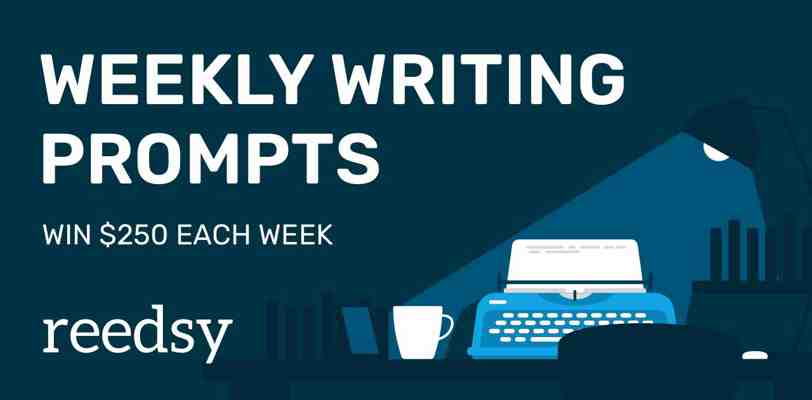
Science fiction. The term often conjures up images of epic space battles, time travel hijinks, and daring rescues in rocket ships. And while there certainly are plenty of science fiction short stories like that, the genre offers a level of variety that is, well, out of this world!
Whether they're about a young man who suddenly doubles his IQ or a linguist who encounters an alien species, science fiction stories use extraordinary scenarios to peel back the masks humanity tries to hide behind. They extrapolate the many terrifying and wondrous ways the future could go, all while answering essential questions about humanity. And... they’re thrilling adventures with space lasers and rocketships.
In short, no subject is too serious or too escapist for this far-reaching genre. From Ray Bradbury to N.K. Jemison and more, science fiction short stories have been an essential part of the literary landscape for decades.
Looking for fresh new science fiction short stories?
Whether you want rip-roaring escapism or a contemplative exploration of humanity, you’ll find a science fiction short story to suit your tastes here. On this page, we’ve gathered the best science fiction short stories from our weekly writing contest. The featured stories, at the top of this page, have either won our contest or been shortlisted, rising above the hundreds of other submissions we receive every week.
Full of promising new writers, this is truly the place to stay up to date on the latest that science fiction short stories have to offer. Who knows, you may just discover an author destined to change the genre landscape forever!
(And if you’re a sci-fi writer, consider heading over and entering the short story contest yourself! You may just walk away with the weekly cash prize.)
10 of the Best Science-Fiction Short Stories Everyone Should Read
What are the best places to begin exploring the wonderful world of science fiction? Some of the classic novels of the genre, from Frank Herbert’s Dune to Asimov’s Foundation series (which eventually stretched to seven volumes), might appear daunting because of their sheer size and scope. Below, we introduce ten short science fiction stories which offer the perfect way in to the imaginative wonders of science fiction.
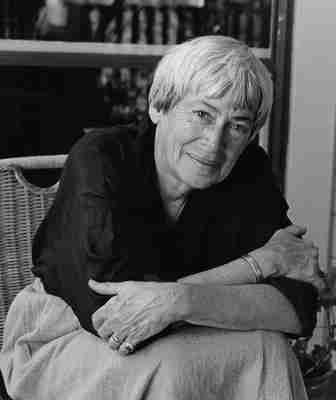
1. H. G. Wells, The Time Machine.
Wells stands at the beginning of science fiction in the English language. Although he wasn’t the very first English science fiction author, his contemporaries, such as George Griffith, have long since been forgotten.
The Time Machine is technically more of a novella than a short story, but it heads Wells’s big, fat complete short stories collection, so we reckon that qualifies it for inclusion here. Published in 1895, this tale centres on a Time Traveller who invents a machine that enables him to travel far into the future. He ends up in the world of AD 802,701, in a London that has been transformed into a vast garden, and where humankind has evolved into two distinct subspecies: the above-ground Eloi and the sinister subterranean Morlocks …
We have discussed this remarkable novella in more detail here.
2. E. M. Forster, ‘The Machine Stops’.
Is this the most prophetic story of the twentieth century? Published in 1909 and showing Forster’s disdain for technological advancement and the way it would make our lives poorer, this story attracted plenty of new readers in 2020 when so many people’s lives ‘went virtual’. It’s all here: Zoom, self-isolation, and even the fear of other human beings. Controlling everything is ‘the Machine’, a mysterious technological entity worshipped as a god by many of the inhabitants of this future Earth.
You can read our analysis of this prescient short story here.
3. Shirley Jackson, ‘The Lottery’.
This 1948 story is among the most acclaimed short stories of the twentieth century, and earns its place on this list because of the speculative nature of its scenario (recalling, perhaps, Borges’ ‘The Lottery in Babylon’) and the ambiguous setting.
The story is set in a fictional town. Every year an event known as ‘the lottery’ takes place. This lottery involves a member of the community being selected at random – but the fate of the person selected is truly chilling. Jackson’s story, like Le Guin’s (see below) is about the concept of the scapegoat and the dynamic between the individual and the collective in society. The story initially attracted much negative reaction from readers of the New Yorker (where it was first published), with many readers cancelling their subscriptions, horrified and disgusted by the story. It is now regarded as a classic.
4. Isaac Asimov, ‘Nightfall’.
This 1941 short story, written while Asimov was still only in his early twenties, is widely regarded as one of the greatest science-fiction short stories of all time. Indeed, in 1968 the Science Fiction Writers of America voted it the best science fiction short story written before 1965.
The story is about a planet which doesn’t experience nightfall, except once in every 2,049 years, because it is normally lit by six suns. Since every human being alive will find nightfall a terrifying experience when that rare eclipse occurs, scientists worry about their chaos that will ensue when night falls …
5. Ray Bradbury, ‘A Sound of Thunder’.
This is another classic time travel story, this time involving a journey back into the distant past rather than the far-flung future. The story was first published in Collier’s magazine in 1952 and then collected a year later in Bradbury’s short-story collection, The Golden Apples of the Sun.
The story begins in the future, sometime around 2055. A time-travel safari company in the United States, Time Safari Inc., allows animal- hunters to travel back in time in a Time Machine and kill a long-extinct animal, such as a dinosaur. A man named Eckels turns up ready to undertake his safari … with disastrous results.
You can read more about this story in a separate post.
6. Arthur C. Clarke, ‘The Nine Billion Names for God’.
This 1953 story is another which, like Asimov’s ‘Nightfall’, is often given the title of ‘one of the best short stories written before the Nebula Awards were created in the mid-1960s’.
A group of Buddhist monks think that, once every single name by which ‘God’ is known has been listed, the world – indeed, the whole universe – will end. They predict there are 9 billion different names in total, which new technology will allow them to itemise. Two men are hired to be the computer programmers for the monks’ task. What happens when all nine billion names are printed out? Well, that would be telling …
7. Ursula K. Le Guin, ‘The Ones Who Walk Away from Omelas’.
This story, like Jackson’s ‘The Lottery’, is perhaps more correctly labelled ‘speculative fiction’: it’s set in the fictional town of Omelas, in which everyone is happy and prosperous. But such happiness and prosperity has come at a terrible cost, for the success and contentment of everyone’s life is dependent on the suffering of a small child which is kept in miserable conditions in a room in the town. Le Guin raises some deeply unsettling but important ethical questions in this classic story, which is told in the beautiful, eloquent prose for which Le Guin’s work is rightly famed.
We tease out some of the elements of this story in a separate post.
8. Philip K. Dick, ‘We Can Remember It For You Wholesale’.
Dick (1928-82) has attracted a devoted cult following since his untimely death, and his work fuses Kafkan paranoia and fear over police states and totalitarianism with an interest in psychedelia, drugs, altered consciousness, and related paraphernalia of the 1960s. In this story, which formed the basis of the 1990 film Total Recall, a man named Douglas Quail learns of a special ‘holiday’ to Mars that can be implanted into the brain so one can experience a trip to another planet without having to go anywhere.
9. J. G. Ballard, ‘Billennium’.
This 1962 story from one of the most original authors of the twentieth century is a dystopian tale set in a vastly overpopulated future, in which the world’s population is around 20 billion. As a result, people live in extraordinarily cramped rooms in vast cities. The story focuses on two friends, Ward and Rossiter, who find new living quarters and then discover a whole new room behind one of their cupboards.
10. William Gibson, ‘Burning Chrome’.
Often credited with coining the term ‘cyberspace’ (a word he certainly helped to popularise), William Gibson (born 1948) is perhaps the greatest living science-fiction author, and one of the most prophetic. His early novels of the 1980s helped to establish ‘cyberpunk’ as a new branch of science fiction, and no writer has engaged so imaginatively and prophetically with our new world of the internet and digital communication as Gibson.
Like many science fiction writers, Gibson started out writing short fiction such as ‘Johnny Mnemonic’ and ‘Burning Chrome’. The latter story prefigures Gibson’s debut novel, Neuromancer, from two years later, in focusing on a computer hacker: a startlingly new character type in the early 1980s.
This story is not available online, but is the title story of the William Gibson collection Burning Chrome.
Like this: Like Loading...

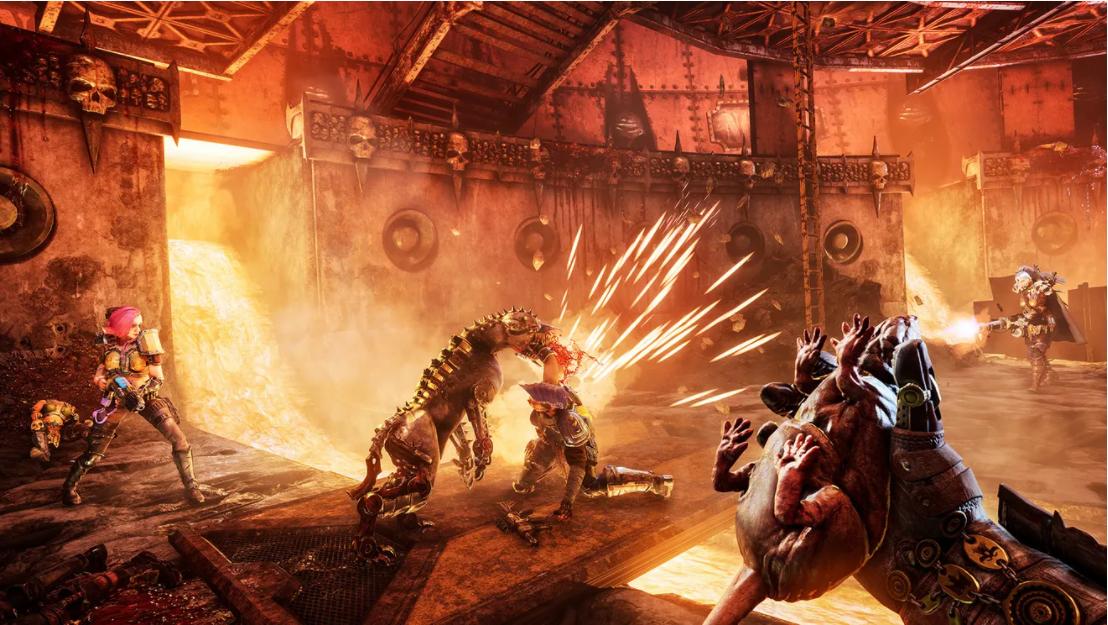
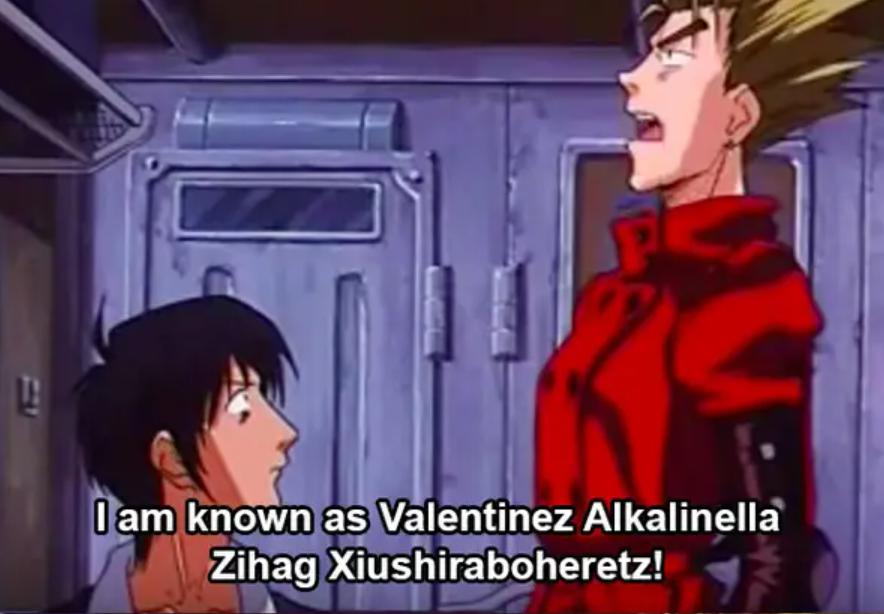
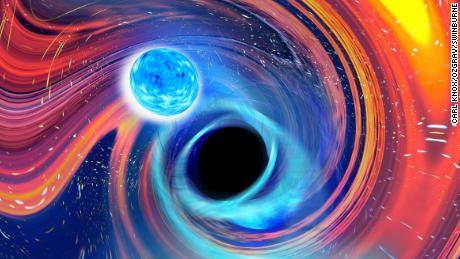


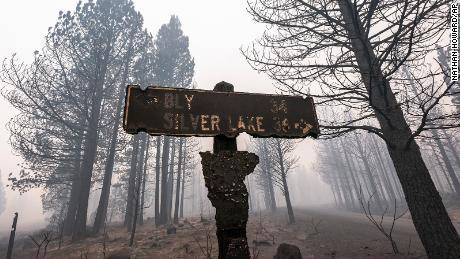


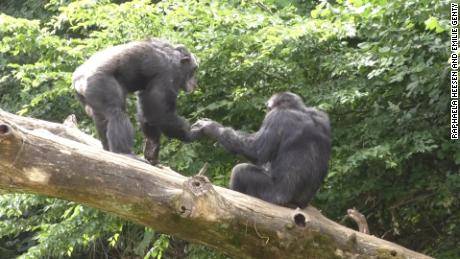

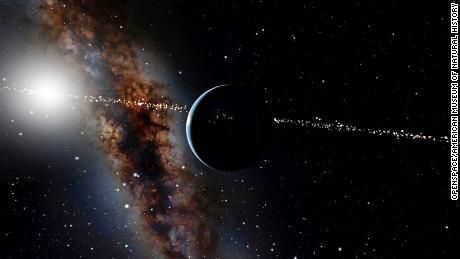
Write a Comment